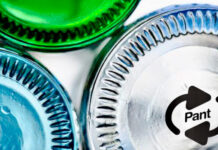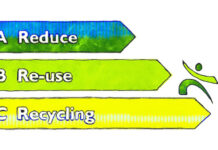Green light from the European Parliament for the packaging regulation (PPWR). The text – approved with 426 votes in favour, 125 against and 74 abstentions – will be examined by the Council before moving on to the examination of the trilogue (representatives of Parliament, Council and Commission), which will be followed by the final vote. (1)
As expected, the agri-food sector is removed from the ambitions of reducing disposable plastics, recycling prevails over reuse and all disposable fast food and take-away food containers survive the bans.
Reduction targets
The general objectives of packaging reduction remain set at the levels envisaged in the original text of the proposed regulation:
- -5% by 2030,
- -10% by 2035,
- -15% by 2040.
MEPs they also ask to determine specific objectives for plastic packaging, with a gradual reduction of
- -10% by 2030,
- -15% by 2035,
- -20% by 2040.
Disposable containers, no more hotel courtesy kits
The list of disposable packaging is reduced.
The prohibition remains for
– hotel courtesy kits (shampoo, etc.) with a capacity of less than 50 ml for liquids and 100 ml for solids,
– plastics that bring together different units of the same product (such as those for grouping drink cans).
The bans lapse if at least 85% of the weight of the predominant material is recycled by 2028.
Save the baskets of strawberries dear to Coldiretti
No prohibition it is instead proposed by MEPs for those types of packaging that have caused so much discussion in Italy. This includes plastic packaging for fruit and vegetables, regardless of weight, such as bags of fresh-cut vegetables and baskets of strawberries, which unnecessarily distressed Coldiretti in Italy. (2) With all due respect to supporters of the need to ‘undress’ fruit. (3)
Save even
– wax and wooden packaging used to package some cheeses (such as the French Camembert),
– disposable plates and glasses from fast food restaurants and restaurants,
– single-dose packs of sugar and sauces (mayonnaise, ketchup, for example).
Limits on super thin plastic bags
Very light plastic bags, with a thickness of less than 15 microns, remain in use whennecessary for hygiene reasons or provided as primary packaging for bulk foods when this helps to prevent food waste‘ (amendment 190). This is the case of wrapping moist loose foods, such as raw meat, fish or dairy products.
In the other case, they should be avoided. Such packaging, recall the MEPs, ‘they have a high potential to become waste and contribute to marine pollution‘. In this process, they add, replacement with paper bags must be avoided.
Reduced reuse targets
The reuse objectives of packaging disappear for PET bottles and cans, if Member States reach a separate collection quota of at least 2026% of the main packaging material in the two-year period 2027-85. And also for wines and spirits.
For consumers there is the possibility of purchasing take-away food and drinks in reusable or personal containers, at conditions at least equal to those offered for those who prefer disposable packaging (as mentioned, free from prohibitions). Militant reuse.
Deposit and recycling system
The deposit and return system has proven to be excellent in reducing the dispersion of waste from disposable packaging, as we have seen. (4) Nor does it reduce the sale of soft drinks. (5)
Nonetheless, in the PPWR proposal approved by the European Parliament this system is confirmed as optional for Member States that achieve a high collection rate in the two years preceding the entry into force of the regulation. The collection percentage was reduced by MEPs from 90% to 85%.
Ban PFAS and BPA in packaging, calmly
MEPs are calling for a ban on the use of dangerous PFAS chemicals in packaging, following what was decided in Denmark in May 2020. (6)
‘In light of the health and environmental emergency posed by PFAS and awaiting ECHA’s opinion on a broader ban on PFAS for all packaging and for other sectors, all paper and cardboard food packaging containing PFAS added intentionally they should not be placed on the market of the Union‘.
However, there is a lot to look forward to. In fact, amendment 81 specifies:
‘Food contact packaging containing intentionally added per- and polyfluorinated alkyl substances (PFAS) may not be placed on the market from … [OP: Please insert date = 18 months after the date of entry into force of this Regulation]‘.
Same times provides for amendment 82 for bisphenol A (BPA), another dangerous substance, as seen, for which total exclusion from packaging in contact with food is requested. (7)
Minimum content of recycled materials
The goals relating to the content of recycled material in packaging (to 2030 and 2040) vary depending on the type of packaging and material:
– PET, 30% from 2030 and 50% from 2040,
– materials other than PET, 7,5% (instead of the previous 10%) from 2030 and 50% from 2040.
For the bottles instead, specific targets are set at 30% and 65% respectively.
Are excluded packaging for medicines and baby food from the obligation to contain recycled material. However, materials that are dangerous for food safety, such as inks, adhesives, paints, varnishes and lacquers used on packaging and plastic that represents less than 5% of the total weight of the entire packaging, are not included in the re-entry cycle.
Lightweight compostable labels and bags
Within 36 months (no longer 24 months) from the entry into force of the regulation, they must be compostable, therefore transferable with organic waste
– adhesive labels applied to fruit and vegetables,
– very light plastic bags’required for bulk foods for hygiene reasons or provided as primary packaging for bulk foods when this helps prevent food waste‘.
The bulk that will come
Since 2030, final distributors with a sales area exceeding 400 m2 ‘they should seek to dedicate 10% of their sales space to refueling stations for food and non-food products‘.
Buying food in bulk or ‘on tap’ therefore seems destined to remain a residual offer, despite consumer interest. (8)
Of the 3Rs, Recycling wins
Regarding the text approved by the European Parliament (see attachment in note 9), the rapporteur Frédérique Ries (Renew, BE) declared: ‘Recent events in Europe, and in particular in Belgium, regarding the pollution of water by chemicals PFAS, demonstrate the urgent need for action. By voting to ban pollutants “forever” in food packaging, the European Parliament has shown that it wants to protect the health of European citizens.
With regard to the plastic, the contract has been fulfilled, as my legislative report tackles the heart of the problem by setting tougher waste reduction targets for plastic packaging.
Unfortunately, as regards the circular economy, and in particular prevention, the outcome of the plenary vote is not as positive and ignores the reality of the figures: an increase of 30% by 2030 if we do not act now. Of the 3Rs (Reduce, Reuse, Recycle), only the recycling escaped unscathed. The end of disposable packaging is still far away!‘. (1)
Marta Strinati
Footnotes
(1) Parliament adopts revamped rules to reduce, reuse and recycle packaging. Press release. European Parliament. 22.11.23 https://www.europarl.europa.eu/news/en/press-room/20231117IPR12213/parliament-adopts-revamped-rules-to-reduce-reuse-and-recycle-packaging
(2) Marta Strinati, Dario Dongo. Goodbye baskets of strawberries and salad ready? False alarm. GIFT (Great Italian Food Trade). 10.5.23
(3) Marta Strinati. Too much plastic on fruit and vegetables, the social campaign #svestilafrutta starts to reduce it. GIFT (Great Italian Food Trade). 12.3.18
(4) Marta Strinati. Security deposit system for beverage bottles. The campaign of the Virtuous Municipalities. GIFT (Great Italian Food Trade). 13.3.22
(5) Marta Strinati. Deposit and Deposit Systems, DRS, do not reduce beverage sales. The study. GIFT (Great Italian Food Trade). 27.7.23
(6) Marta Strinati, Dario Dongo. PFAS in rainwater and food, a global ban is urgently needed. GIFT (Great Italian Food Trade). 26.8.22
(7) Dario Dongo, Giulia Pietrollini. Toxicity of bisphenol A, EFSA declares a public health alarm. GIFT (Great Italian Food Trade). 26.4.23
(8) Marta Strinati. Bulk foods, in Italy the demand exists but remains unexpressed. GIFT (Great Italian Food Trade). 28.4.23
(9) ATTACHMENT. The report approved by the European Parliament on 22.11.23 on the PPWR proposal
Professional journalist since January 1995, he has worked for newspapers (Il Messaggero, Paese Sera, La Stampa) and periodicals (NumeroUno, Il Salvagente). She is the author of journalistic surveys on food, she has published the book "Reading labels to know what we eat".








